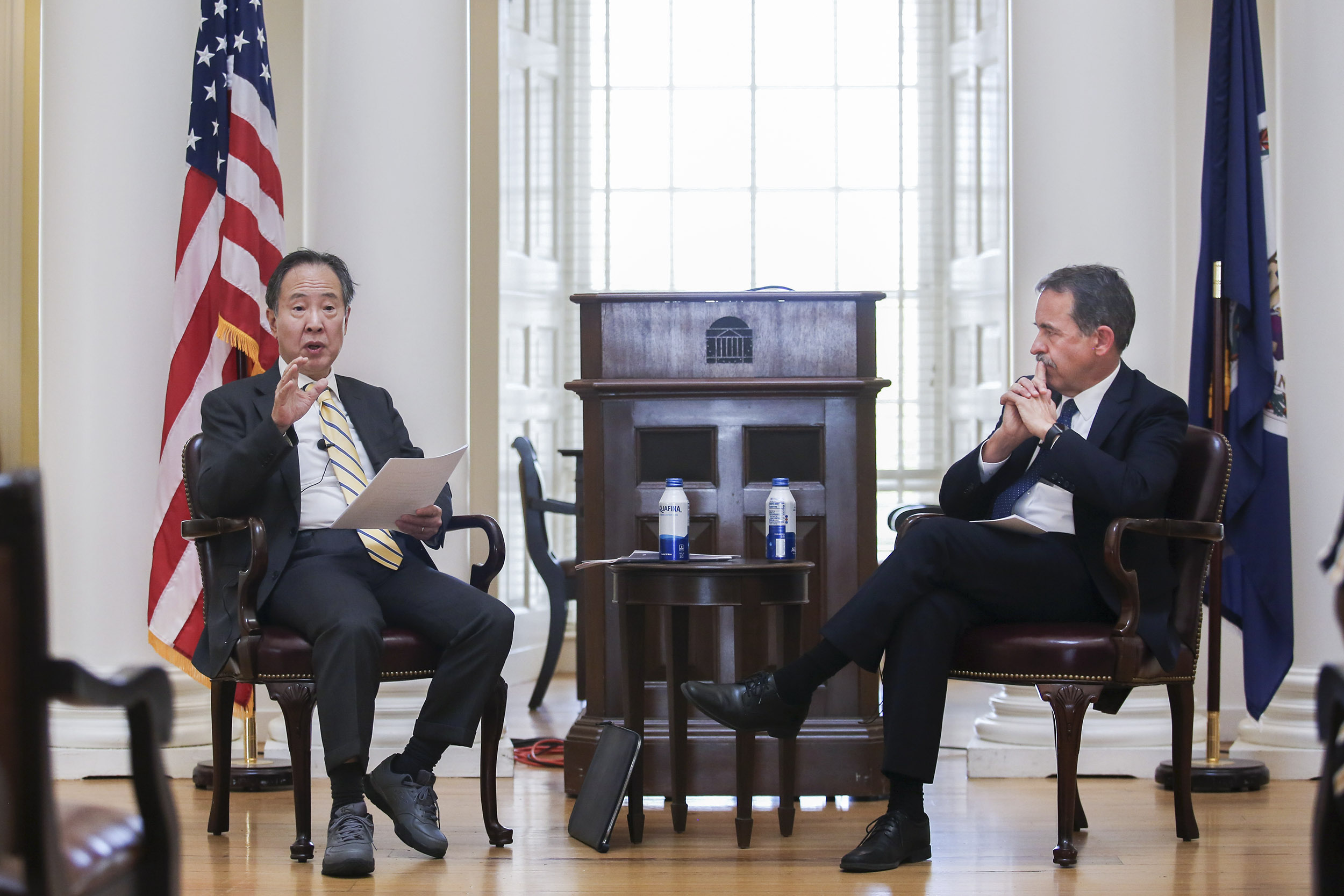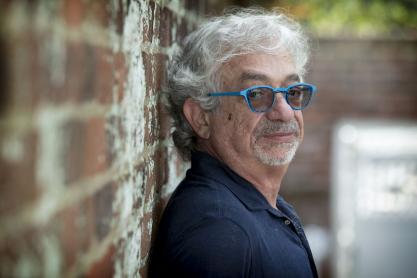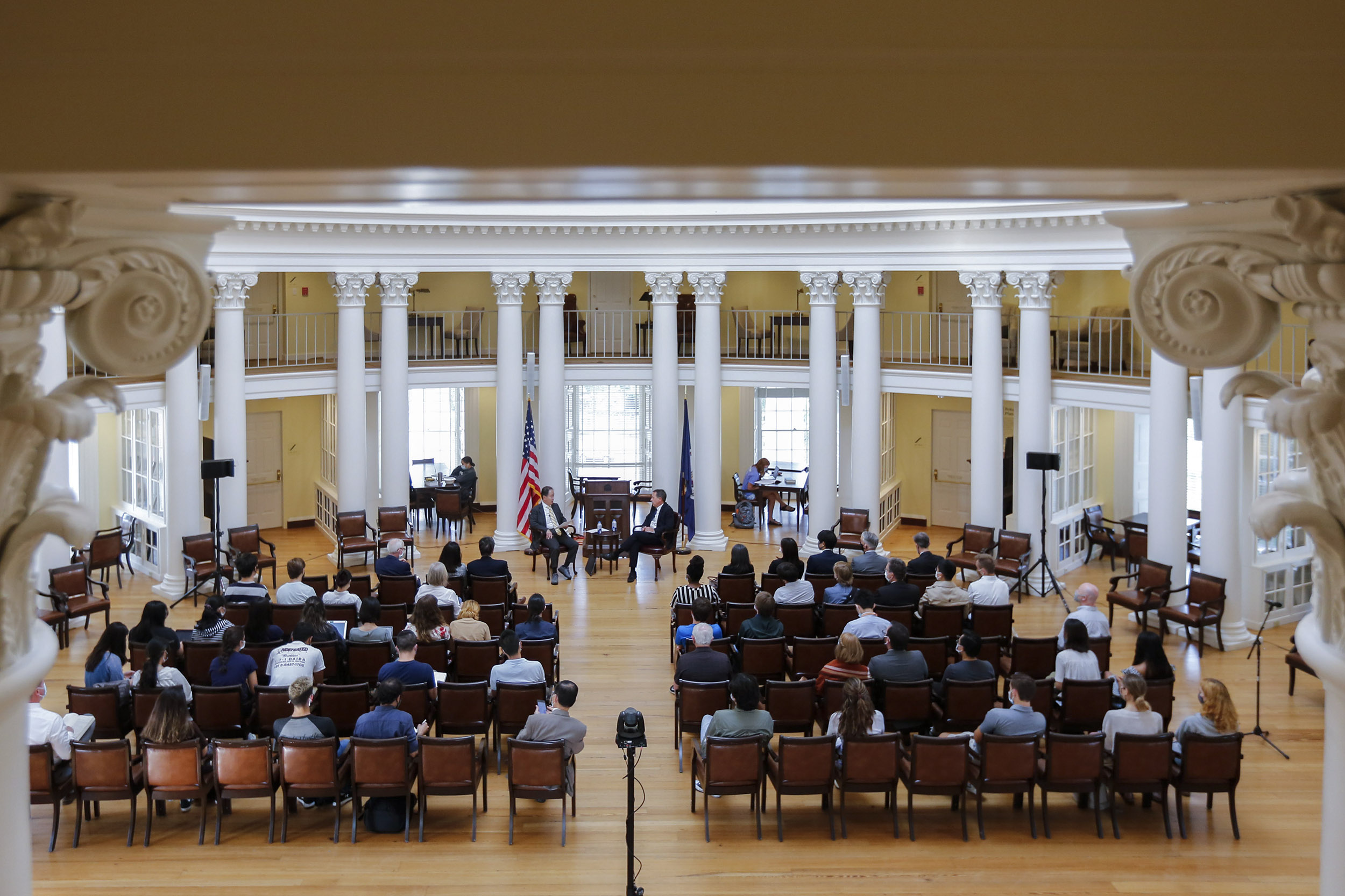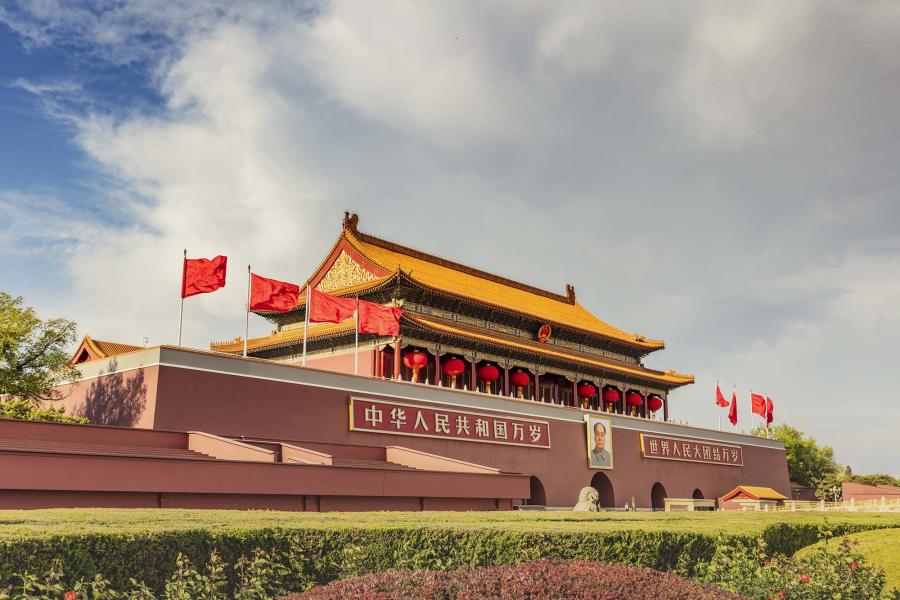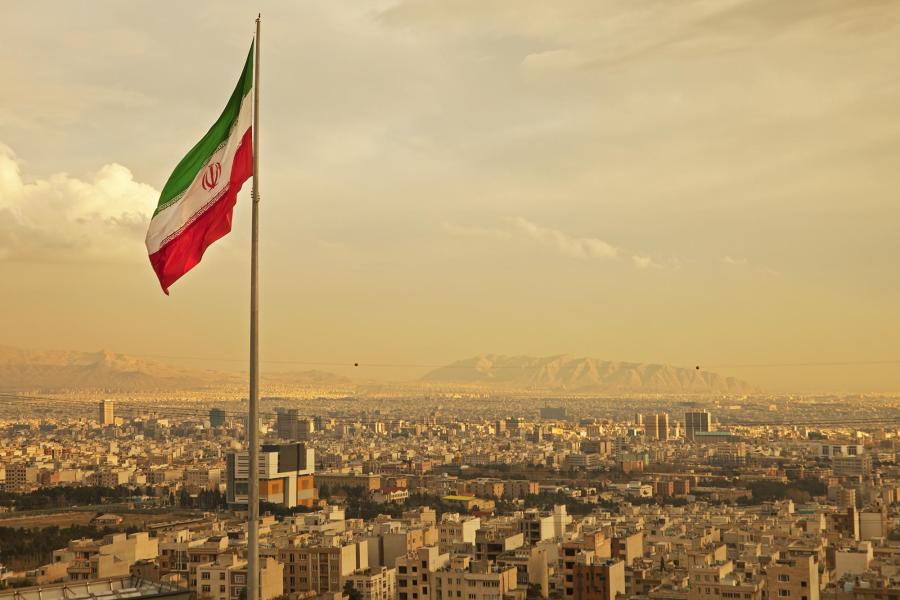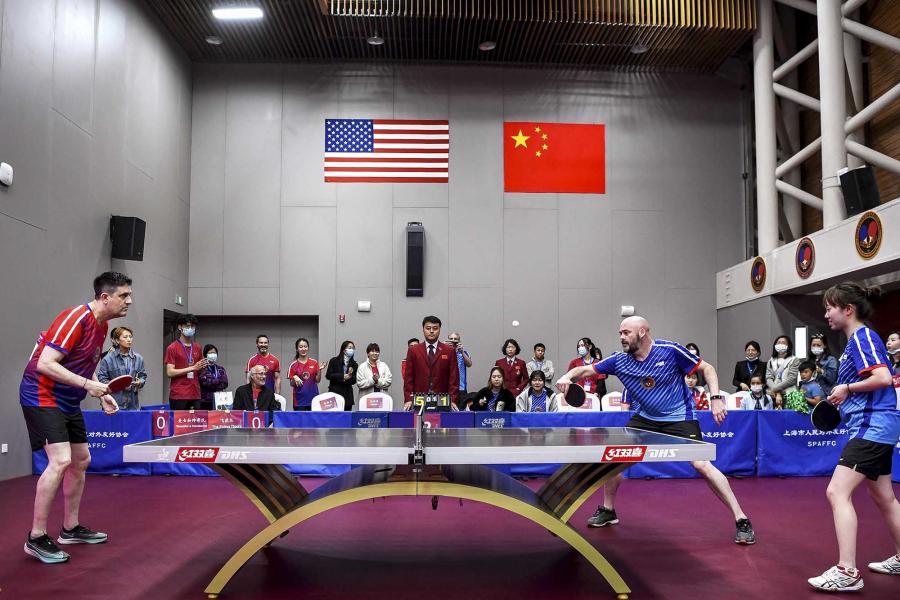Speaking Tuesday to group of University of Virginia faculty, students and staff in the Rotunda’s Dome Room, Japan’s ambassador to the United States, Koji Tomita, analyzed how the U.S.-Japan relationship has evolved over the decades.
He began his remarks by discussing the Washington, D.C., summit hosted by the U.S. over the weekend with leaders of Japan, India and Australia.
“Japan has been a strong proponent of this summit,” he said. “The in-person summit held this weekend was as much about U.S. leadership in the Indo-Pacific region as about the other countries. By actively engaging, the U.S. leaders, including Secretary of State Tony Blinken, are approaching it from position of strength.”
He added that Japan would like to engage China in an open dialogue, but acknowledged that Japan’s relationship with China is much more “complicated” than the adversarial rhetoric that is common in Washington. “Stability between world’s No. 1 economy, No. 2 economy and No. 3 economy matters,” Tomita said.
